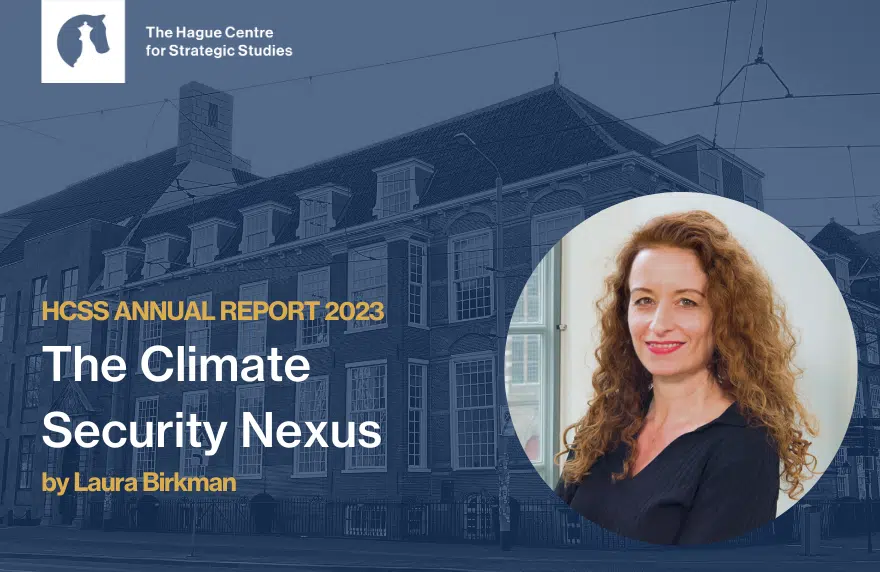The effects of climate change became more prevalent in 2023. It was a record-breaking year for extreme weather events with devastating impacts in all regions of the world. According to NASA, this summer was the Earth’s warmest on record. Compared to the 1850-1900 baseline, temperatures rose by approximately 1.4 degrees in 2023. In Southeast Asia, high humidity conditions in Thailand, Laos and Vietnam were coupled with temperature highs between 41 and 44 degrees, while the inland province of Xin Yang in China and California’s Death Valley had to contend with 52.2 and 56.7 degrees, respectively. Also in Europe, summer temperatures hit an all-time high. Large parts of southern Europe saw up to two weeks of very strong heat stress, corresponding to a perceived temperature of between 38 and 46 degrees. The South of Spain experienced up to 60 days of this level of heat stress. Italy saw temperatures of 48.2 degrees. These values were even higher in Northern Africa and the Middle East, with Tunis hitting 49, Agadir 50.4, and Algiers 49.2 degrees.
This year was also marked by record high sea level rise, continued ocean warming and melting of glaciers and natural disasters with immense human and socio-economic toll. In February and March, Tropical Cyclone Freddy hit Madagascar, Mozambique, and Malawi. In August, the Hawaiian island of Maui was struck by a deadly wildfire, killing 97 people and burning the historic city Lahaina to the ground. Greece was confronted with the largest single fire ever to be recorded in Europe, destroying an area larger than New York City. Meanwhile, Canada’s wildfire season burned six times its 10-year average. In September, Storm Daniel brought on torrential rains in the Mediterranean that resulted in devastating floods in Libya – the worst in its history – killing more than 5,000 people and leaving more than 10,000 (still) missing. The coastal city of Derna was particularly affected, not least due to years of neglect of key dams and the ongoing conflict between the UN-backed government in Tripoli and the eastern rival authority of General Khalifa Haftar governing Derna, hindering a timely and effective response. In November, severe floods in the Horn of Africa left more than 795,000 displaced in Somalia. Many had already been forced to flee the country in previous months due to drought and conflict, fuelling an already urgent humanitarian crisis.
The physical intensification of climate change has wide-spread socio-economic consequences, increasing the fragility and vulnerability of large populations. While the climate-security nexus gained increasing attention, climate mitigation and adaptation efforts remain insufficient. Mitigation measures are still far from agreed goals, with further overall increases measured of carbon, methane, and nitrogen emissions. With the top five emitters – China, US, India, EU, and Russia – deeply divided on broader geostrategic issues, decisive collective action is unlikely to occur in the short term. With the ongoing trade war between the US and China, a neutral India focused on economic growth, and a Russia that is undermining European security and stability, the EU is increasing looking at middle powers to support a more effective response to climate change. More discussions were held in 2023 about expanding the role of the UNSC to address climate-related conflict challenges, with India lifting some of its reservations, but China and Russia still blocking progress there.
More broadly, geopolitical unrest and regional conflicts in Ukraine and the Middle East fuelled great power competition, threatening to divide the international community even further. This will inevitably affect the global community’s ability to respond swiftly and decisively to climate change mitigation and adaptation.
Not all hope is lost, as there is evidence that climate change is still seen as an opportunity for collaboration in an otherwise deeply fragmented world. China and the US announced an agreement in November to ramp up wind, solar and other renewable energy, and the broader aim to displace fossil fuels. Further, NATO is upscaling its efforts in the field of climate security. While under the Paris agreement, there is no specific requirement to cut emissions from military operations, NATO formally recognised climate change as a threat multiplier and one of the defining challenges of our times. In 2023, the world’s biggest defence alliance opened its Centre of Excellence on climate and security (CASCCOE) in Canada, released three big reports on the implications of climate change on NATO operations in 2023. Finally, more governments are recognising that water is still a bigger source for cooperation than for conflict and are taking measures to improve water use and allocation.
Further prospects for smart and collective action hinged in large part on the outcome of the COP28 in Dubai. This COP mattered because it was the first global stocktake on climate action since the Paris Agreement (2015) and would determine the ambition of the updated nationally determined contributions (NDCs), or country level commitments to combat climate change. Starting strong with a substantial financial agreement on loss and damage, major hurdles remain to push emitters to phase out fossil fuels sooner and support a global adaptation agenda. Overall, stalled agreement on mitigation will likely lead to increased competition on climate adaptation, as countries may scramble to take (unilateral) action in regions of geostrategic priority and interest. Where the impacts of climate change are set to worsen and the effects increasingly pose (national) security threats, issues surrounding climate security will become increasingly relevant for the climate change agenda moving forward.
In 2023, HCSS expanded its Climate and Security Programme (CASP) portfolio, supported governments and organisations in their efforts to address climate-related security challenges, raised further awareness and understanding about the climate-security nexus, continued to build on its research, and enhanced its data-driven methods and early warning systems to support policy and decision makers. The sections below offer a summary of the key activities in 2023.
Laura Birkman, Senior Strategic Analyst







